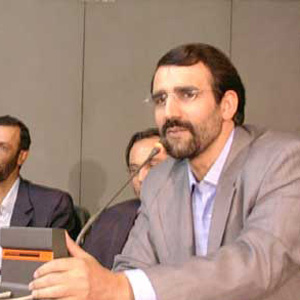Time to Remove Doubts

Ever since Iranian President Mahmoud Ahmadinejad’s broadside against Russia in his speech in the southern city of Kerman, diplomats on both sides have become less conservative in their critiques of each other’s countries.
Mehdi Sanayi, Russian Affairs analyst and a member of the Iranian Parliament’s Committee for Foreign Affairs argues:
To call the row between Tehran and Moscow a ‘tension’ requires a strong dose of exaggeration. Personally, I prefer to see it as the consequence of an ‘ambiguous vibe’. Doubts exist more on the Iranian side, which has been waiting for years to see Russians finish the construction of the Bushehr Nuclear Power Plant. Both countries are, nonetheless, aware of the fact that so far the stability of the region and the promotion of national interests have been achieved through bilateral ties.
In Russia, the camp which Putin and Lavrov represent advocates a balance between East and West in Moscow’s foreign policy. It attaches value to Russia’s relations with Iran and the Muslim world and believes that in order to upgrade Moscow’s international status, Russian foreign affairs strategy should be based not on mere cooperation, but on a blend of competition and cooperation. Regarding Iran, this group is less influenced by internal and foreign lobbies.
Against this camp is the one represented by President Dmitri Medvedev. It supports closer ties with the West and underlines proximity with Europe, a market economy, and political freedoms. The ‘Iran approach’ of this camp is closer to the West. Despite the disagreement over Iran, some observers believe these two camps ultimately converge over Russia’s national interests.
Moscow, I believe, should show further appreciation of its ties with Iran and adopt trust-building measures. The prolonged construction project of the Bushehr Nuclear Power plant, the delay in delivering to Iran the S300 air defense systems agreed to and paid for, and the unexpected turns it exhibits in foreign policy, will ultimately widen the gap between Iran and Russia. The significance of Tehran-Moscow ties and their impact on the sustaining of regional stability call for the prompt removal of any ambiguities.
Russia should also consider its long-term interests in cooperation with Iran. Failing Iran would be tantamount to losing the trust of some other countries which have signed major contracts with Moscow, namely India, Syria, Saudi Arabia, and Oman.

